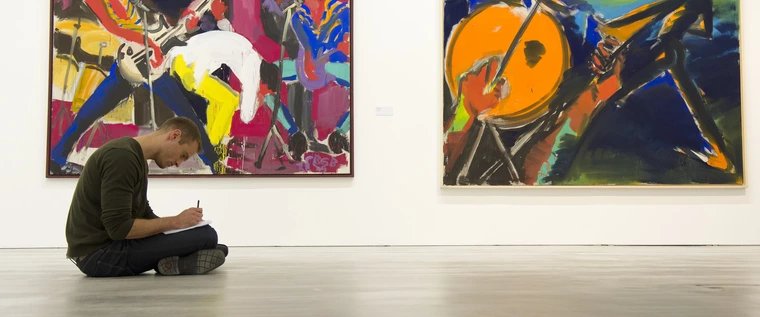
The First German Colonial Exhibition of 1896 in Berlin-Treptow
The museums Treptow-Köpenick and the project Decolonial Remembrance Culture in the city show the first permanent exhibition on colonialism, racism and black resistance in a Berlin museum.
From May 1 to October 15, 1896, the "First German Colonial Exhibition" took place in Treptower Park.
As part of a discriminatory "Völkerschau", 106 people from the German colonies were put on display in front of an audience of millions.
Politics, business and churches as well as ethnological and natural science museums were involved in this large-scale event.
Most of the participants were not aware that they were to be "exhibited" in front of an audience in Berlin. Many of them resisted the role assigned to them: Kwelle Ndumbe from Cameroon bought an opera glass and looked back at the audience in Berlin.
The colonial exhibition of 1896 is a central event in Berlin's global history and of particular significance for the history of its black community.
The permanent exhibition "zurückgeschaut | looking back" is dedicated to the history and aftermath of the First German Colonial Exhibition.
The focus is on the 106 children, women and men from Africa and Oceania, their biographies and their resistance. In addition, the structure of the colonial exhibition and its historical context are clarified.
The new exhibition is the result of a close cooperation between the Treptow-Köpenick museums and the Afrodiasporic and decolonial organizations of the Projektverbund Dekoloniale Erinnerungskultur in der Stadt. The graphic redesign of "zurückgeschaut | looking back" was done by Studio visual intelligence.
Decolonial Remembrance Culture in the City is a joint project of Berlin Postkolonial e.V., Each One Teach One - EOTO e.V., Initiative Schwarze Menschen in Deutschland - ISD-Bund e.V. and the Stiftung Stadtmuseum Berlin.
The Decolonial [Re]Presentations subdivision realizes a series of cooperative exhibitions in different districts that deal with Berlin's colonial and resistance history and its aftermath. The project is funded by the Berlin Senate Department for Culture and Europe and by the German Federal Cultural Foundation.
Additional information
Opening hours:
- Mon. thru Thu.: 10:00 - 18:00
- Fri.: 9:00 - 14:00
- Sat. & Sun. : 14:00 - 18:00



